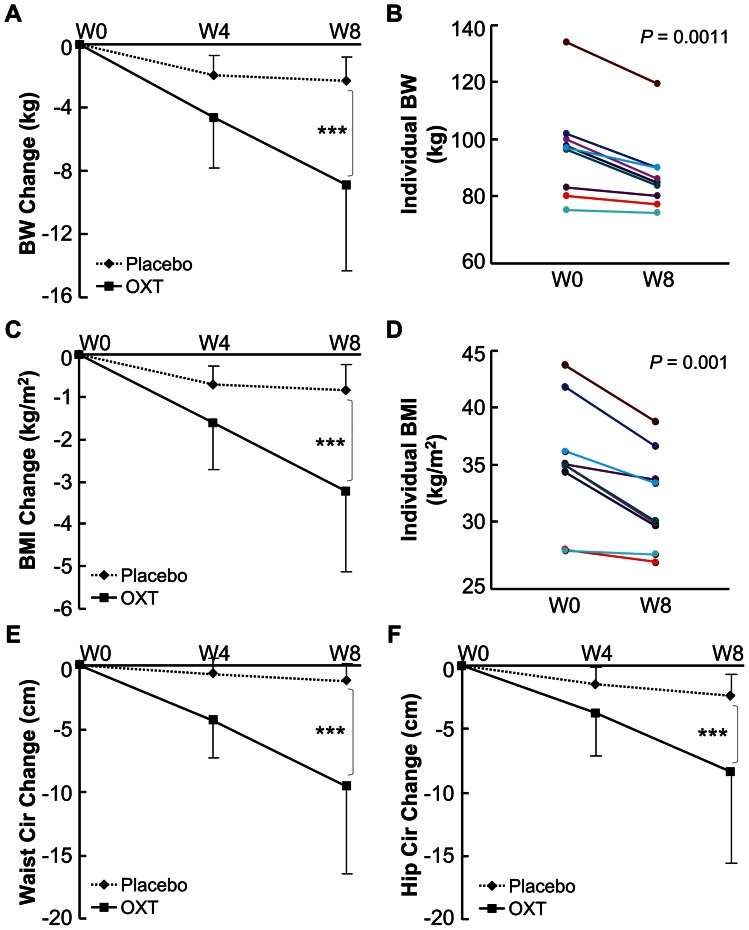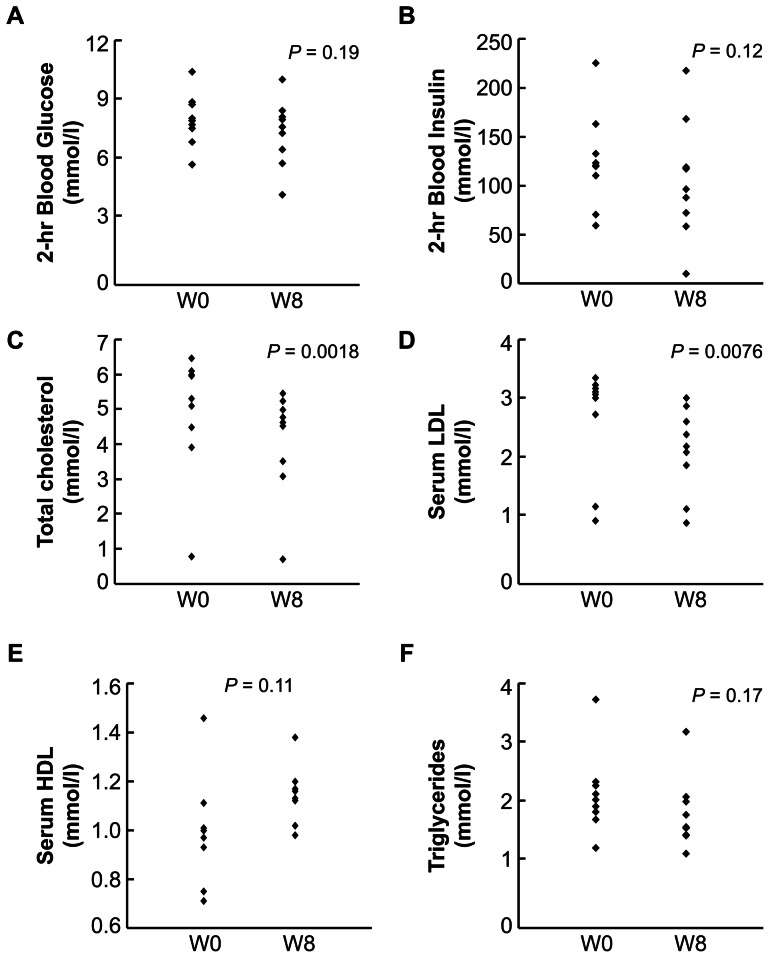We’ve all heard about oxytocin – the “love hormone” that “brightens” our mood when we feel down. This hormone, as a neurotransmitter, plays a crucial role in our emotional responses, allowing us to feel trusted and loved.
However, scientists have found another role of oxytocin, as this hormone may potentially help treat some metabolic diseases, like obesity and diabetes.
RELATED: Testosterone Therapy May Help Obese Men Lose Weight
“Love Hormone” Oxytocin May Help Treat Obesity and Diabetes
What Is Oxytocin?
Oxytocin is a naturally occurring hormone produced in the human brain. It is stored in the pituitary gland and released into the bloodstream to deliver chemical messages and their various effects.
Since many effects of oxytocin involve neural activities, it’s also considered a neuropeptide. Oxytocin consists of 9 amino acids and has a broad range of actions in the human body, including:
Female Reproduction
The systemic action of the oxytocin hormone mediates females’ reproductive activities, such as laboring and milk production (lactation).
During laboring, oxytocin is released to stimulate the contractions of the uterine, allowing for childbirth delivery. This role explains why women may be given oxytocin to facilitate labor if childbirth cannot be done naturally.
Similarly, the oxytocin hormone stimulates the contractions of breast tissues, aiding in the milk production process after childbirth. As long as breastfeeding continues, oxytocin is continuously released to keep milk production constant.
This constant release of oxytocin occurs because this hormone has a positive feedback loop, meaning that oxytocin release causes actions that stimulate the pituitary gland to release even more.
Emotional Behaviors
Another role of the oxytocin hormone is related to the psychological aspects of humans, such as social recognition, parent-infant, pair bonding, emotion, trust, love, and care.
Mothers with higher levels of oxytocin have a better bond with their children. Likewise, sexual partners with more oxytocin tend to have a healthier relationship due to oxytocin’s role in romantic attachment, hence the name “love hormone” or “cuddle chemical.”
And did you know that a simple act of touching appears to stimulate oxytocin release?
We can increase oxytocin levels simply by hugging someone, making love, or doing other activities that result in a greater sense of well-being.
In contrast, although lower-than-normal oxytocin levels are uncommon, people lacking this hormone are more vulnerable to neurological and psychological disorders, such as autism and depression.
Metabolic Health
To everyone’s surprise, apart from the well-known roles of oxytocin listed above, scientists have recently found that oxytocin may exert multiple effects on metabolic health, suggesting that this hormone may have therapeutic uses for treating some diseases.
These effects were observed in a clinical study, where oxytocin in the form of nasal spray helps patients improve their metabolic conditions.
This is not the first and only study in which scientists looked into the metabolic effects of oxytocin. The same group of scientists had conducted multiple animal studies before that. They found that injected oxytocin can work to treat and prevent obesity in mice.
That finding provoked them to continue with another clinical trial to test if oxytocin could be used to treat metabolic diseases in human patients.
How Does Oxytocin Work for Obesity and Diabetes?

Administration of Oxytocin Stimulates Central Release
The premise of using oxytocin in treating obesity and diabetes is to increase this hormone level in the brain and circulation.
However, since increasing oxytocin release directly from the brain is impossible, scientists hypothesize that nasal spray can be an alternative route to increase this hormone.
Indeed, the same study above found that, when peripherally administered, oxytocin can activate the part of the brain that releases oxytocin. Nonetheless, peripherally delivered drugs may often lose effectiveness because of the physical and biological blockade of the blood-brain barrier.
Enhanced Oxytocin Induces Beneficial Metabolic Effects
Oxytocin can then work in the brain to improve neural metabolic regulation and thus combat obesity and obesity-related metabolic abnormalities.
Scientists suggested that oxytocin in the brain may employ the autonomic nervous system and neuroendocrine pathways to influence the liver and pancreas to regulate glucose and insulin homeostasis.
It turned out that what scientists hypothesized was true. Research has found that oxytocin induces a cascade of positive effects on glucose and insulin associated with obesity prevention. Furthermore, oxytocin plays a role in obesity treatment by helping patients lose weight and correct their body composition.
RELATED: Tirzepatide as the Next Game Changer in Weight Loss Drugs
Oxytocin Benefits for Obesity and Diabetes Treatment

Reduce Body Weight and Waist Circumference
Oxytocin after a 4-week treatment resulted in body weight reduction by an average of 4.6 kg. This effect on body weight continued to be emphasized when oxytocin treatment was extended to 8 weeks, showing that body weight dropped 8.9 kg on average, compared to baseline levels.
The study also found that in patients with a higher degree of obesity, the magnitude of weight loss induced by oxytocin treatment was more noticeable. In other words, the more a person is affected by obesity, the more effective he may get from oxytocin.
Consistently, weight loss due to oxytocin treatment may come along with a reduction in waist circumference. The study showed that this measurement decreased significantly by up to 10 cm after eight weeks.

Effects of intranasal oxytocin treatment on obesity in humans.
Reduce Postprandial Glucose and Insulin Levels
After eating a meal, our blood glucose level quickly surges as carbohydrate is metabolized to create an energy source for the body. In response to glucose elevation, insulin also “spikes” to bring down glucose levels and keep blood sugar within a normal range.
However, in people with diabetes, glucose and insulin levels are constantly high because their bodies cannot use insulin effectively. For this reason, an approach to preventing and treating diabetes is to cause glucose and insulin to “sink” after eating.
The study found that although oxytocin treatment did not affect fasting blood glucose or insulin levels, it did tend to reduce postprandial glucose and insulin levels to healthier profiles within normal ranges.
Interestingly, changes in postprandial glucose or insulin levels were not correlated with body weight loss, suggesting that oxytocin may improve glucose and insulin homeostasis through an obesity-independent mechanism.
Reduce LDL Cholesterol and Increase HDL Cholesterol
We tend to associate cholesterol with bad vascular health. However, not every cholesterol is terrible.
For example, HDL is known as “good” cholesterol because it aids in the removal of “bad” cholesterol, such as LDL, from your bloodstream.
The study found that oxytocin treatment significantly reduced LDL and increased HDL cholesterol levels. Additionally, oxytocin can reduce total cholesterol and triglyceride levels, which benefits heart health.

Effects of oxytocin treatment on obesity-related metabolic changes in humans.
Reverse Glucose Intolerance and Insulin Resistance
Finally, the study found that oxytocin may prevent diabetes by reducing postprandial glucose and insulin and treating diabetes by reversing glucose intolerance and insulin resistance.
RELATED: Is Diabetes an Autoimmune Disease? And What Are Possible Treatment Options?
Does the Administration of Oxytocin Have Any Side Effects?
During the study, no adverse effects were reported by patients or found in physical examinations. In addition, oxytocin treatment had no adverse effects on the cardiovascular, liver, or kidney systems.
Instead, patients’ liver function improved slightly, perhaps resulting from obesity management and liver fat reduction.
Oxytocin Dosage and Delivery for Obesity and Diabetes
The study used a nasal oxytocin spray for eight weeks, and the treatment dosage was 24 units, four times per day. In addition, patients were given an oxytocin dosage 20 minutes before each meal and sleep.
A nasal spray is the most effective route of administration for oxytocin. Although oxytocin may lose its effects due to the blood-brain barrier, it can enter the brain through the “backdoor” via the olfactory nerve.
Bottom Line: Oxytocin as Obesity and Diabetes Treatment
Current studies have shown that oxytocin may be an additional therapeutic intervention for treating obesity and diabetes. However, future studies with larger samples and longer duration will require researchers to fully evaluate nasal oxytocin spray’s efficacy and side effect profiles.
References
Zhang, H., Wu, C., Chen, Q., Chen, X., Xu, Z. et al. (2013). Treatment of Obesity and Diabetes Using Oxytocin or Analogs in Patients and Mouse Models.
Yunique Medical provides FUNCTIONAL MEDICINE for optimized health and performance. We offer customized, scientifically advanced treatments to create a new state of human thriving. Why be ordinary when you can be optimal?
HUMAN 2.0 begins here!
Contact us to schedule your FREE consultation at one of our three locations in Florida – Ocala, Fruitland Park (The Villages), and Daytona.
UP NEXT:

